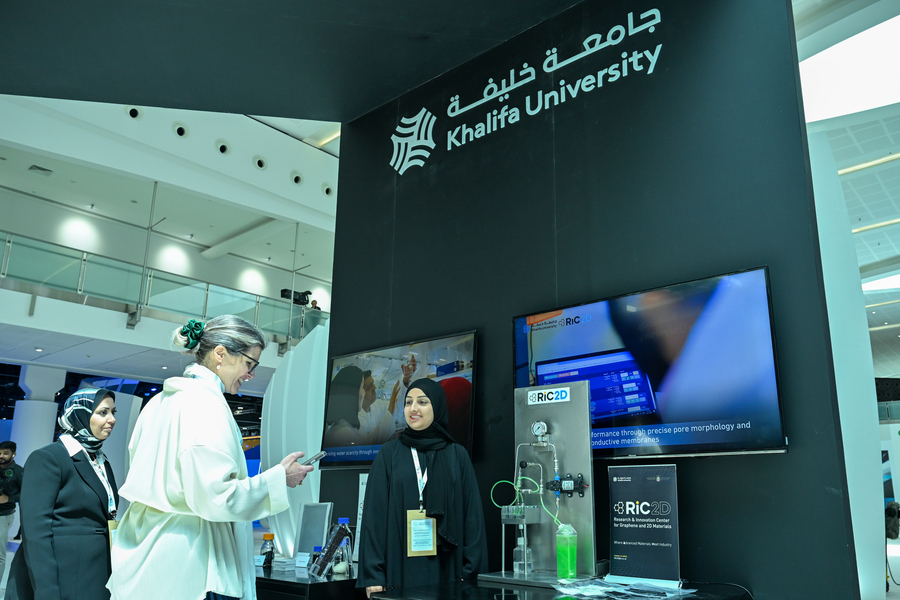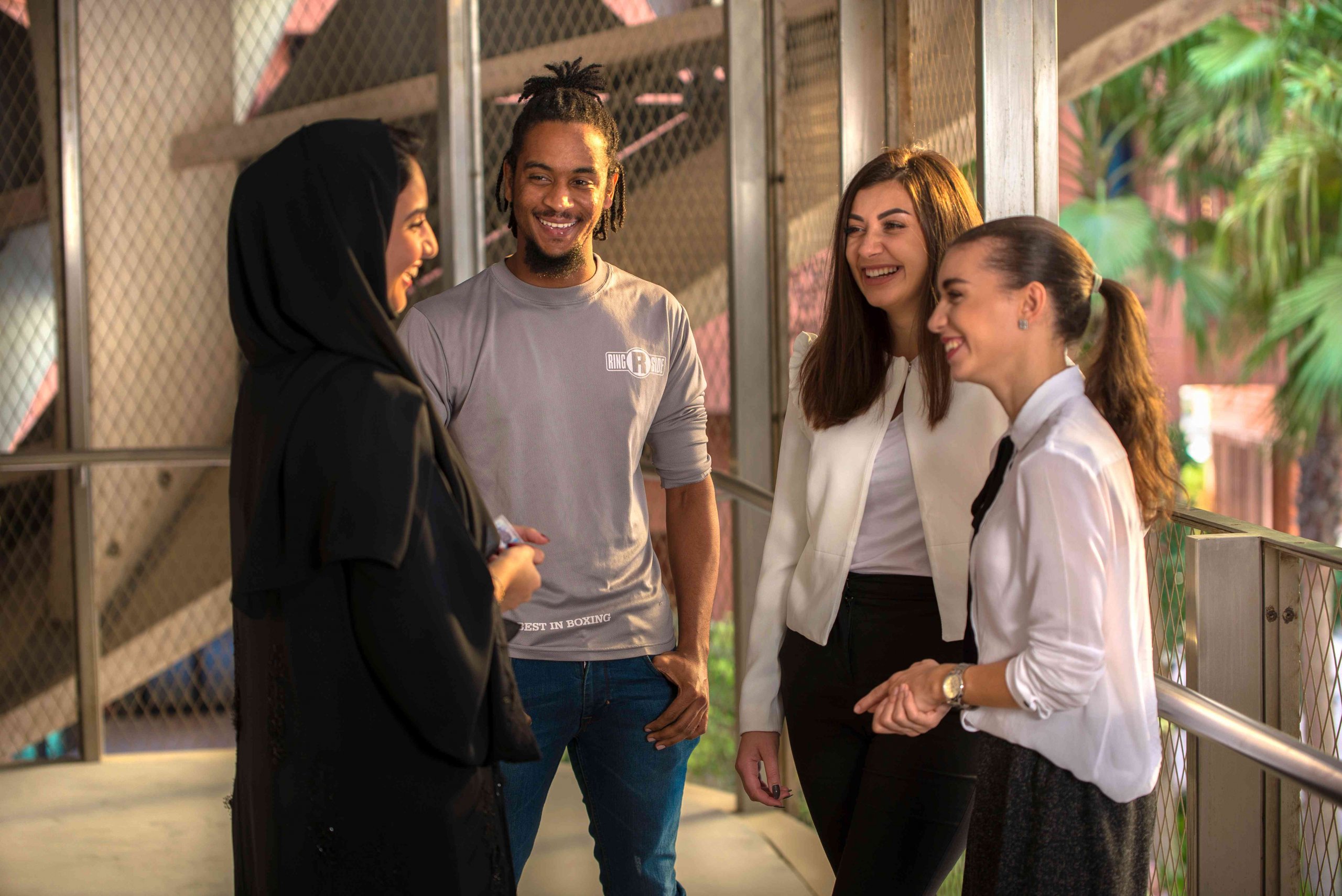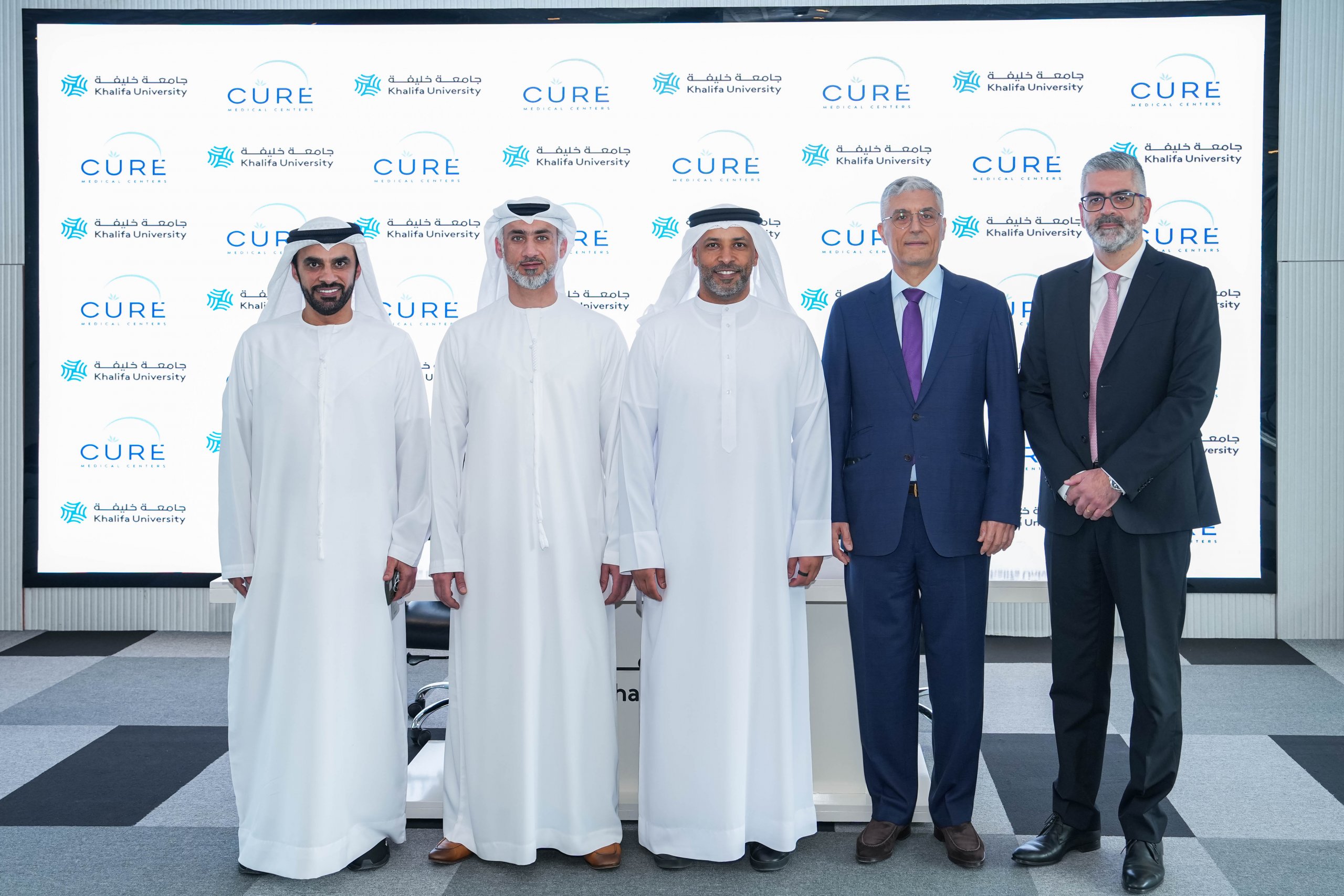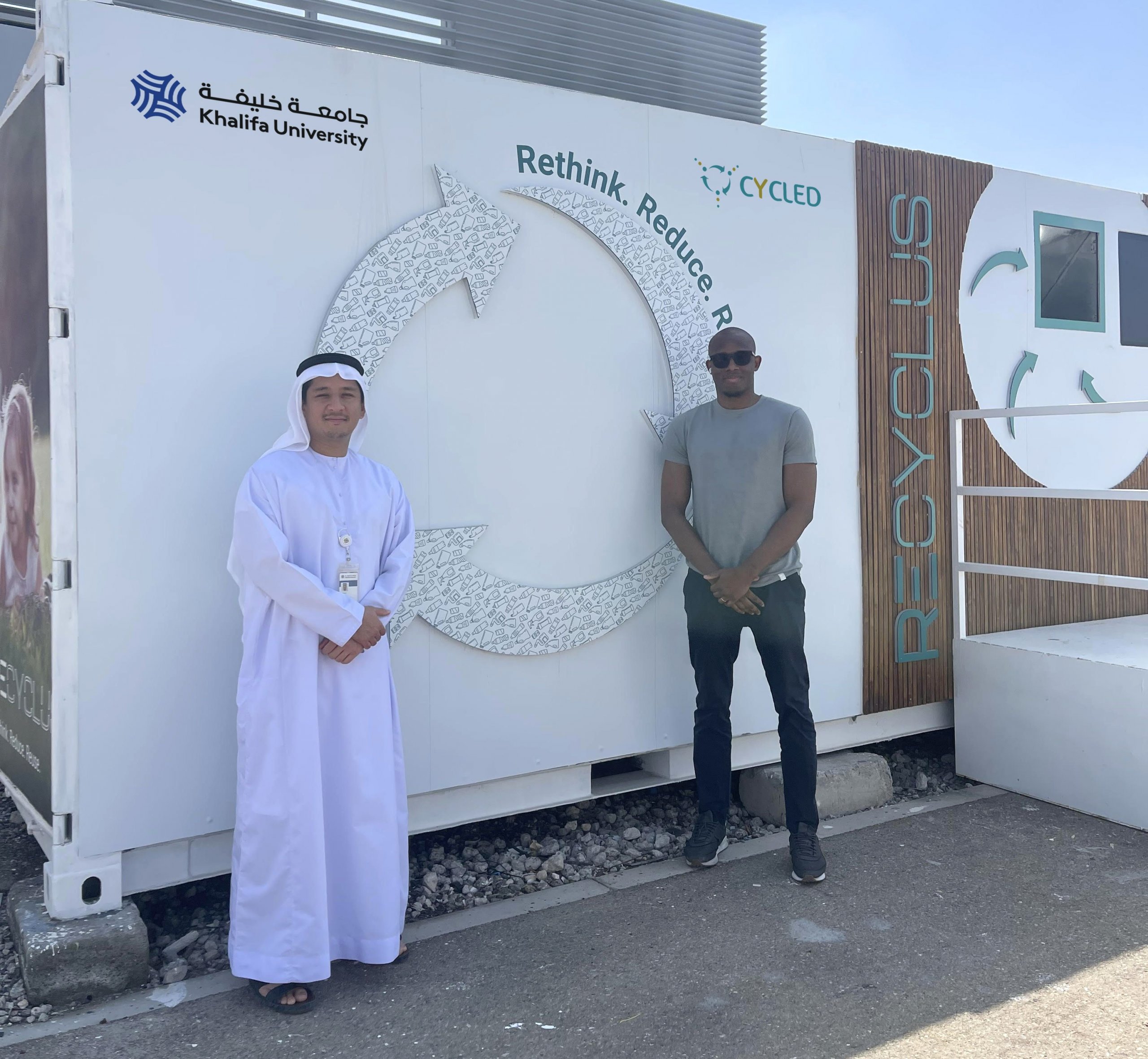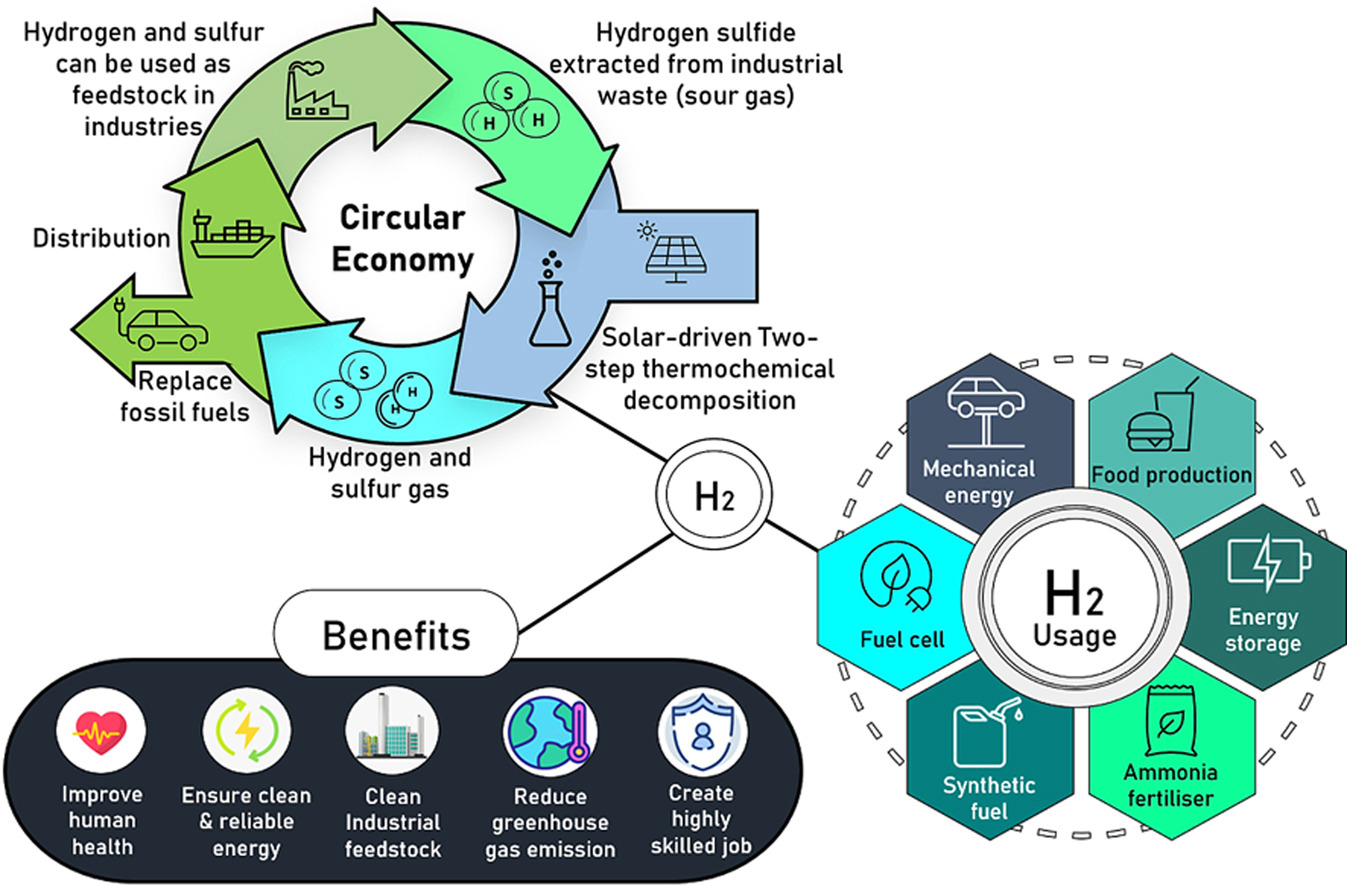Experts and Students Participate in Sessions on Innovation and Entrepreneurship, Human Capital Development and Creation of IP
Abu Dhabi-UAE: 21 January, 2013 – Masdar Institute of Science and Technology, an independent, research-driven graduate-level university focused on advanced energy and sustainable technologies, today announced experts and faculty members marked their participation in the sixth edition of the World Future Energy Summit (WFES) through effectively leading various knowledge sharing sessions.
Panel discussions, debates and workshops at WFES 2013 witnessed experts and students from Masdar Institute sharing their expertise in human capital development, creation of intellectual property and spreading a culture of Innovation and entrepreneurship in the UAE and the region. At the same time, a dedicated display of key water-related research initiatives at the International Water Summit (IWS) 2013, another component of WFES, reiterated Masdar Institute’s role in obtaining innovative solutions for the region and worldwide.
The participation in WFES 2013 brought under spotlight the special expertise Masdar Institute has acquired and developed under three themes that drive its research activities. The themes include ‘Water, Environment and Health’, ‘Advanced Energy Systems’ and ‘Microsystems and Advanced Materials’.
Organized under the patronage of His Highness Sheikh Mohammed bin Zayed Al Nahyan, Crown Prince of Abu Dhabi and the Deputy Supreme Commander of the UAE Armed Forces, WFES 2013 was held from 15-17 January at the Abu Dhabi National Exhibition Center (ADNEC). The Summit gathered nearly 30,000 participants from 150 countries including heads of states, as well as key decision-makers from the government and the global energy industry.
Dr Fred Moavenzadeh, President Masdar Institute led the panel discussion on human capital development on ‘Innovation and Entrepreneurship’. The panelists included His Excellency Dr. Adnan Badran, President of Petra University, Deputy Director-General of UNESCO, and Member of the Board of Trustees of Masdar Institute, Dr Mohammed Baniyas, Provost, UAE University, Dr Larry Wilson, Provost, Zayed University and Dr Tod Laursen, President, Khalifa University.
In his opening address at the annual EU-GCC Clean Energy Network Conference that was held concurrently with WFES 2013, Hamza Kazim, Vice-President, Operations & Finance, highlighted the capabilities already existing in the GCC region and pointed out that the Abu Dhabi summit proved to be a valuable forum for intra-regional and international knowledge sharing. Masdar Institute is the lead institution for the GCC region at the Network.
Dr Lamya N. Fawwaz, Executive Director, Public Affairs, participated in a panel discussion on ‘The role of Women in Future Energy: Breaking down the Barriers’, highlighting the vital role of Masdar Institute and the UAE in empowering women. Dr Fawwaz additionally pointed out various factors that might help facilitate the entry of more women in the clean sustainable energy and advanced technology sectors. Three Masdar Institute students – Reem Al Junaibi, Reem Ketait and Catherine Wilcox – also shared the platform with the dignitaries and women leaders in energy industry.
At the International Water Summit 2013, a dedicated Masdar Institute stand displayed key water-related research projects that included initiatives undertaken by Dr. Nidal Hilal, Professor in Nano-membranology and Water Technologies, and other faculty members.
Dr. Farrukh Ahmad, Associate Professor Water and Environmental Engineering, Masdar Institute participated in a workshop titled ‘The role of Water Recycling and Water Re-Use in Arid Regions for Mitigating Water Scarcity’ at the World Future Energy Summit 2013. The workshop, facilitated by Walid Saleh, Regional Coordinator, MENA The United Nations University – Institute for Water, Environment, & Heath (UNU-INWEH, focused on understanding the importance of water re-use in arid regions is of vital importance to ensure community self-sufficiency.
Dr. Hassan E. S. Fath, Professor of Practice – Water and Environmental Engineering, participated in a panel on‘Optimization of Water Production, Technology and Process to Positively Impact Environment’ that aimed to highlight the integration of renewable energy sources in reducing water supply gap to reduce environmental impact and introduction of incentives to stimulate commercial opportunity in clean technology. The session was moderated by Bert Diphoorn, Senior Advisor, Urban Basic Services, UN-Habitat.
Hosted by Masdar, Abu Dhabi’s renewable energy company, WFES was part of the Abu Dhabi Sustainability Week 2013. The week-long events served as a global platform not only to highlight the activities of participating governments, businesses and organizations, but also to strengthen cooperation in driving sustainable development, focusing on the interconnected challenges of energy and water.
Serving as a key pillar of innovation and human capital, Masdar Institute remains fundamental to Masdar’s core objectives of developing Abu Dhabi’s knowledge economy and finding solutions to humanity’s toughest challenges such as climate change.
Established as an on-going collaboration with the Massachusetts Institute of Technology (MIT), Masdar Institute integrates theory and practice to incubate a culture of innovation and entrepreneurship, working to develop the critical thinkers and leaders of tomorrow. With its world-class faculty and top-tier students, the Institute is committed to finding solutions to the challenges of clean energy and climate change through education and research.


